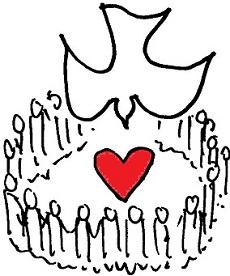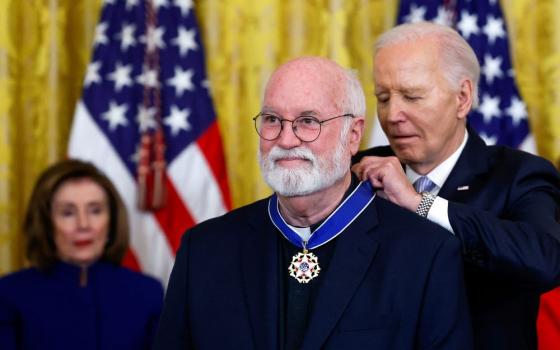
“Unclean spirit, come out” (Mark 5:7).
Jesus’ dramatic encounter with the Gerasene demoniac contains allusions to the presence of strong Greek and Roman influence in the region of the Decapolis, or 10 cities, east of the Sea of Galilee in what would today be Jordan and Syria.
Alexander the Great had conquered the area three centuries before the time of Jesus, and Roman armies had followed, assimilating the local populations into imperial trade, religion and culture. Greek and Roman culture challenged many Jewish beliefs and values. The Maccabean revolt (167-160 BCE), which reclaimed Judea, Jerusalem and the Temple from Greek rule, was part of the long Jewish resistance to Greco-Roman assimilation.
Jesus travels by boat to this region and is met by a fierce demoniac living among the tombs possessed by a “Legion” of unclean spirits who recognize him as the "Son of God." Jesus drives out the spirits into a large herd of 2,000 pigs that rush into the lake and are drowned.
One possible way to understand the story beyond the liberation of a single possessed man is to see that Jesus was liberating Creation itself from Original Sin. His Spirit was more powerful than the unclean spirits within the secular cultures pervaded by domination, idolatry and injustice. Even the power of imperial Rome and its legions could not withstand the authority of the Word of God to reclaim the whole world from the power of sin and death.
Healing the deep influences of culture, especially one connected to economic benefits, is no small challenge. We are witnessing today the divisive impact of fear-driven ideologies and political movements that oppose immigration reform and humanitarian refugee policies as well as legal protection of authentic diversity. The way forward for a pluralistic society will require more than a knowledge of history and a renewed commitment to democracy and human fairness.
Globally, deep healing of the post-World War II collective spirit among nations and a cultural transformation that restores civility, tolerance and human respect for one another is needed. Openness to the common good can effect such an awakening to basic values and the hope of a shared future for all peoples.
Our faith calls us to participate in this process of renewal and reconciliation. Jesus is among us as healer and guide, cleansing us of the forces of fear and selfishness, suspicion and prejudice that can overtake all of us when we feel threatened. The antidote is available to us. The way of the Beatitudes (yesterday’s gospel) is the path to life, and we must model and promote it effectively.











